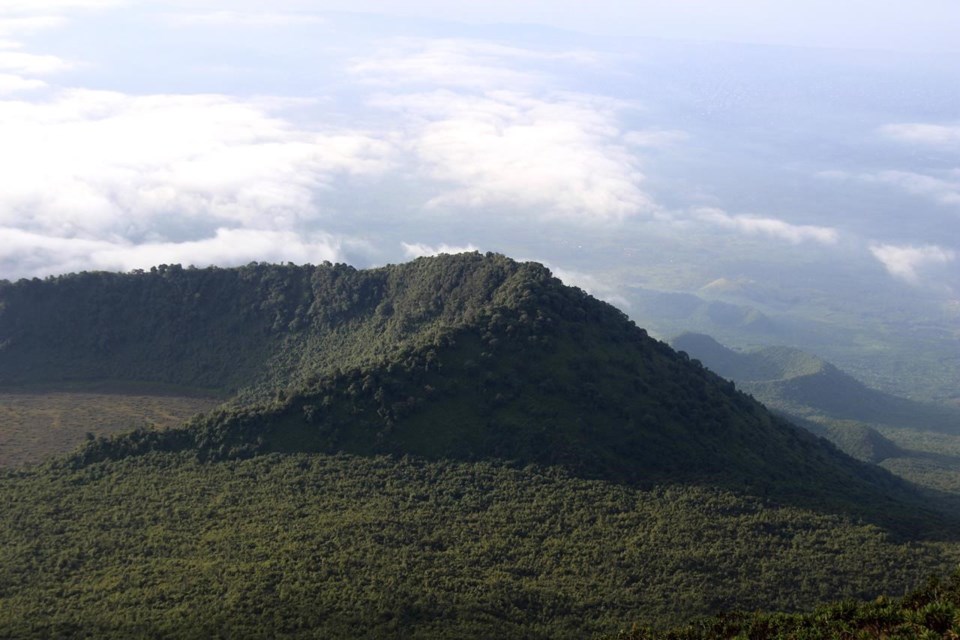MOMBASA, Kenya (AP) — The auctioning of oil and gas blocks in Congo has stirred resistance and concern among local Indigenous communities worried about damage to their homes and large swaths of forest, according to a report released Thursday by several environmental groups.
In late July, the Congolese government put 30 oil and gas blocks in the country up for auction with 13 blocks crisscrossing through protected areas and national parks, causing uproar among environmentalists. The Congo Basin forest absorbs an extraordinary 1.5 billion tons of carbon dioxide — about 4% of global emissions — some of which would be released into the atmosphere if the areas are cleared for oil and gas drilling.
The report comes just days before Congo’s government is set to co-host with Egypt a meeting on climate change in the capital Kinshasa. That’s ahead of the United Nations’ climate summit in November in Egypt.
But concerns about the blocks extend well beyond the increase of greenhouse gas emissions, the report said.
Recent hostile relations between Congo and its neighbors, especially Rwanda, could escalate, as 18 of the proposed oil blocks are in borderlands shared by Congo, Rwanda and four other nations, it warned.
“Small communities of Indigenous peoples will inevitably be impacted,” added Tal Harris, a spokesperson for Greenpeace, which was part of the report. Harris said the Twa and Mbuti people would be especially at risk of waterborne diseases and pollution if the forests are transformed for drilling.
Many members of affected Indigenous groups in the area are strongly opposed to the oil and gas block auctions, the report said.
“What do the people stand to benefit from these 30 oil and gas concessions?” asked Simon Counsell, a spokesperson for Indigenous rights charity Survival International.
Counsell pointed to a new Congolese law passed a month before the oil and gas blocks auction which called for the rights of its Indigenous population, including the right to consultation, to be considered.
The Congolese government said the oil and gas block auctioning process “is in line” with development plans and government programs in the country.
“The auctioning process intends to scrupulously respect all Congolese laws and regulations, and adhere to the most rigorous international standards,” said Tosi Mpanu-Mpanu, senior climate negotiator for Congo and former chair of the Least Developed Countries group at U.N. climate negotiations.
The government also pledged that drilling will be conducted using methods that minimize environmental impacts.
The Congo Basin is known for massive reserves of cobalt, lithium and other minerals that, among other uses, are essential for renewable energy technologies such as batteries needed for solar panels. The country is the world’s largest cobalt producer. Congo’s government has previously defended the auctions by stressing the need to diversify the country’s cobalt-reliant economy.
Despite its wealth of minerals and biodiversity, Congo is one of the world’s poorest nations and part of a negotiating bloc of states at the United Nations that are the most vulnerable to the effects of climate change. Millions of people across Africa, particularly those in densely populated informal settlements outside of major cities, are vulnerable to weather extremes, such as drought, heat waves and flooding, according to the U.N.’s weather agency.
___
Associated Press climate and environmental coverage receives support from several private foundations. See more about AP’s climate initiative here. The AP is solely responsible for all content.
Wanjohi Kabukuru, The Associated Press



